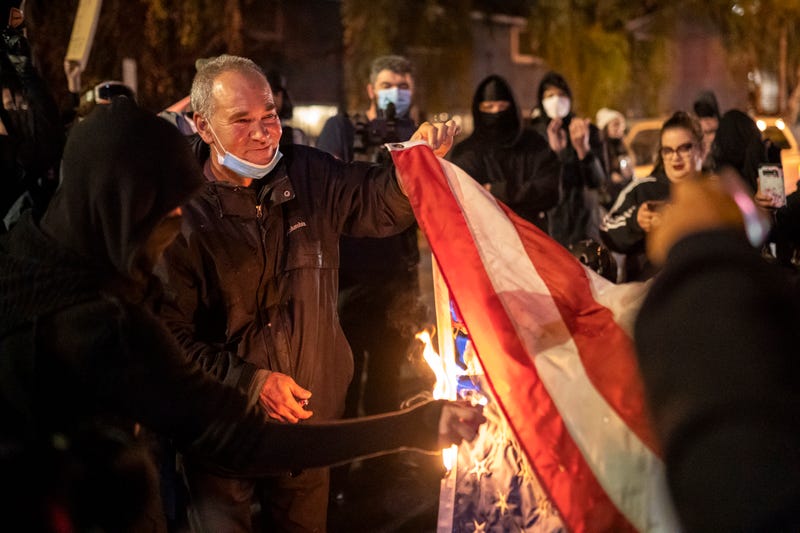
President Donald Trump is expected to sign an executive order directing federal prosecutors to go after people who burn or deface the American flag, arguing the nation’s most powerful symbol deserves legal protection.
The order, he says, is about strengthening patriotism and showing respect for the country.
But there’s a major constitutional hurdle: the U.S. Supreme Court has already ruled—twice—that flag burning is protected free speech.
The landmark case came out of Texas. In 1984, Gregory Lee Johnson burned an American flag outside the Republican National Convention in Dallas to protest Ronald Reagan’s policies.
He was arrested under a Texas law banning flag desecration and sentenced to a year in prison. Johnson appealed, and in 1989 the Supreme Court handed down a 5-4 decision in Texas v. Johnson, striking down his conviction.
The justices ruled that flag burning, no matter how offensive, is symbolic speech shielded by the First Amendment.
The following year, in United States v. Eichman, the Court struck down a federal law banning flag desecration for the same reason.
That means any attempt by the White House to prosecute flag burning will collide head-on with established precedent.
Legal experts predict immediate court challenges, saying the executive order is unlikely to survive judicial review. For now, the move sets up a political flashpoint - pitting patriotic symbolism against bedrock constitutional freedoms.
LISTEN on the Audacy App
Tell your Smart Speaker to "PLAY 1080 KRLD"
Sign Up to receive our KRLD Insider Newsletter for more news
Follow us on Facebook | Twitter | Instagram | YouTube
